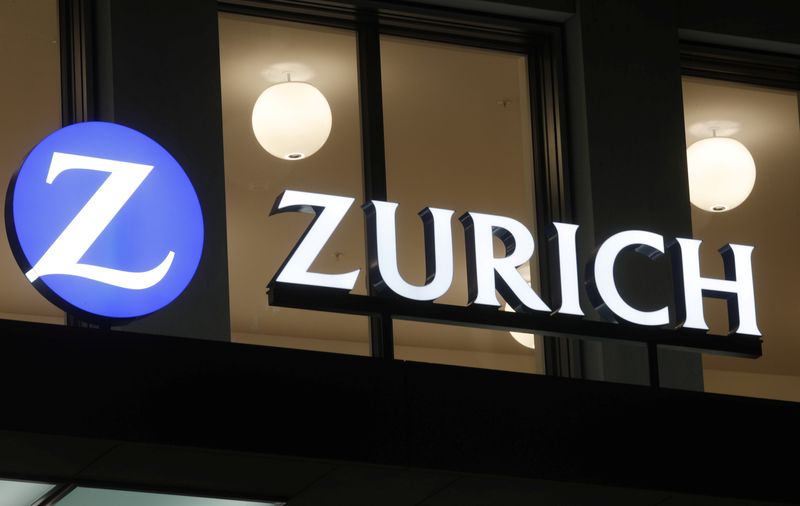By Michael Shields and Carolyn Cohn
ZURICH/LONDON (Reuters) -Zurich Insurance Group expects a net $550 million pre-tax hit from Hurricane Ian, Europe's fifth-largest insurer said on Thursday, though it remains on track to beat its 2020-2022 financial targets, helped by premium rate rises.
Insurers face potential losses of up to $60 billion from Hurricane Ian, which ravaged Florida and the Carolinas in September in what could be the second-largest natural catastrophe loss in U.S. history.
Climate change is contributing to greater losses from natural catastrophes for insurers, and some of them are backing away from covering the risk, particularly in hurricane or wildfire-prone areas.
"I'd love to take (Hurricane Ian) as a one-off but I'm not sure it is," chief financial officer George Quinn told Reuters, adding that natural disasters were likely to become more severe and frequent.
"We are going to continue to constrain our appetite for natural catastrophe risk."
Zurich sees its overall catastrophe loss ratio for the first nine months around two percentage points above long-term trends.
Zurich holds an investor day next week when it will set out its 2023-2025 targets. Quinn said the targets will likely be tougher, after "robust premium increases" helped the insurer's recent performance.
Zurich reported property and casualty premiums rose 8% to $33.5 billion in the first nine months, a gain of 13% on a like-for-like basis.
The insurer said life insurance new business annual premium equivalent (APE) fell 6% but rose 2% on a like-for-like basis that adjusts for currency movements, acquisitions and disposals.
Zurich's Swiss Solvency Test (SST) capital ratio was estimated at 252% as of Sept. 30, up from 212% a year ago, a sign of greater capital strength.
Zurich's shares were down 1% at 0840 GMT, underperforming European insurance stocks. KBW analysts pointed to a capital ratio below expectations, reiterating their "underperform" rating on the stock.
Zurich announced a 1.8 billion Swiss franc ($1.83 billion) share buyback programme at half-year results, which Quinn told an earlier media call would likely kick off in the fourth quarter.

($1 = 0.9979 euros)
($1 = 0.9856 Swiss francs)